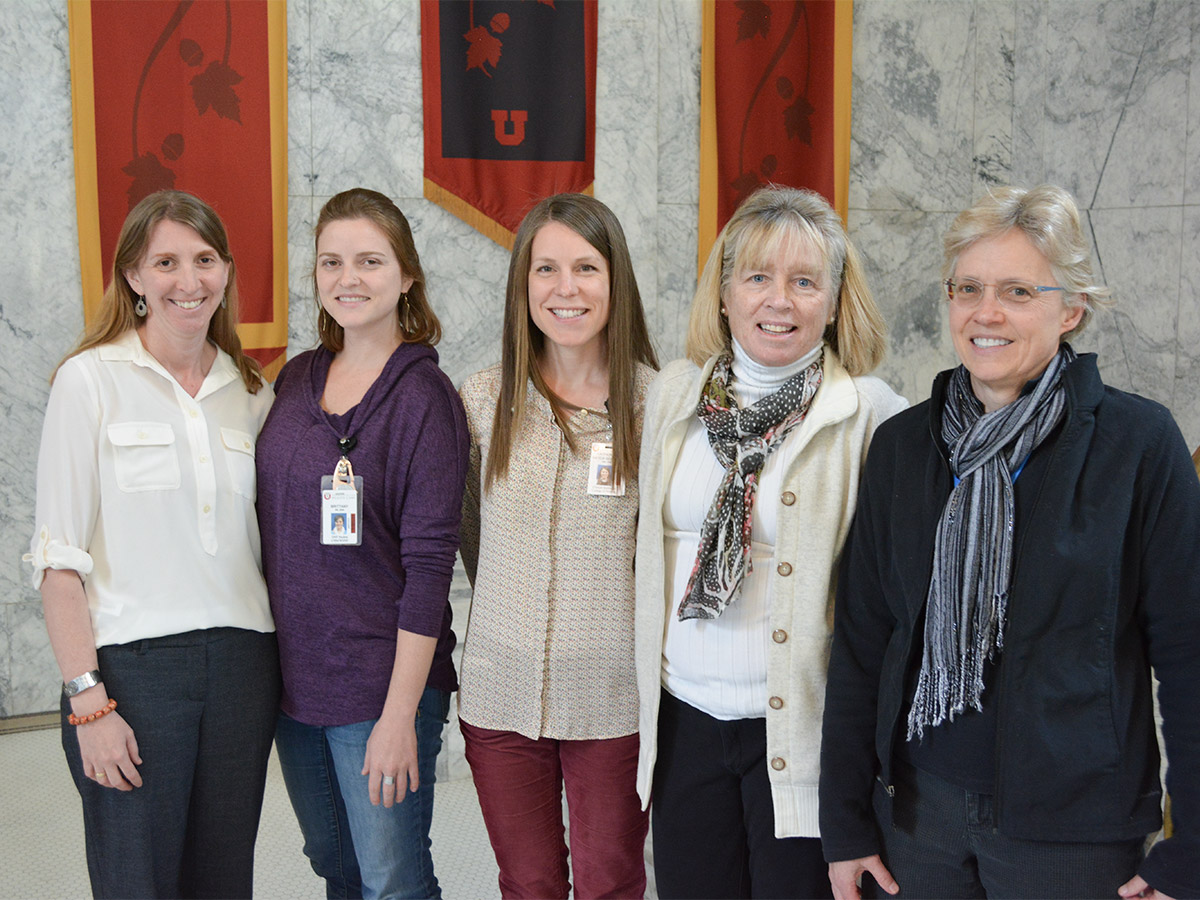The Office for Global Engagement (OGE) held its third annual Awards Ceremony on April 27th. Among those recognized were the teams that were awarded Global Learning Across the Disciplines (GLAD) grants.
In 2016-17, OGE awarded three grants in the fall and one in the spring semester. The GLAD grant provides up to $10,000 in funding for teams composed of at least three faculty members to integrate global learning into the curriculum. GLAD focuses on transforming curriculum to allow opportunities for students to engage in global learning in their respective discipline. Winners this year represented architecture and design, anthropology, nursing, and ethnic studies.
Mimi Locher, Lisa Henry Benham, Jonathan Mills, and Adam DeChant won a grant this past fall for their project Transcending Borders: Embedding Global Citizenship Within Architecture and Design. During her speech, Locher stated that at a staff meeting they began to discuss “how we could start look at our curriculum, very critically, and think about ways in which to implement and integrate ideas like global citizenship.” Their project will create a working group that includes faculty, students, staff, and local practitioners supported by a graduate assistant to develop relevant programming and research to embed the teaching and practice of global citizenship and learning into their academic programs.
Shane MacFarlan, Adrian Bell, and Brian Codding, the GLAD faculty team for the Department of Anthropology, plan to formally integrate global learning outcomes into the department’s curricula and to expand and formalize opportunities for global learning. Research assistants will coordinate with faculty and students to organize offerings and assess demands. The final product will include revised syllabi incorporating global learning outcomes, a new proposal for an emphasis in Global Anthropology, and a series of poster presentations designed to promote the new global learning courses, emphasis, and learning abroad opportunities.
In the College of Nursing (CON), the GLAD faculty team made up of Debra Penney, Susanna Cohen, Amy Cutting, and Catherine Hatch Schultz, plan to conduct a comprehensive needs assessment (curricular, stakeholders and partnerships) and develop and pilot a “Global Facilitation” training program. The assessment will identify strengths and areas for improvement in the CON curricula and determine the role the CON can play in bridging global learning gaps. Findings will be presented to CON curriculum, Interprofessional Education, and Global Health committees. The facilitator training will equip global learners with knowledge, experiential learning and mentorship to collaborate effectively with individuals and teams in global settings, and will include both preparation for- and debriefing after- global learning experiences.
The Ethnic Studies team: Lourdes Alberto, Edmund Fong, and Elizabeth Archuleta initiated a multi-phase process to (re)envision a curriculum that emphasizes comparative approaches to student learning by challenging undergraduates to think through global perspectives, global flows, and global systems in relation to the U.S. Edmung Fong stated at the ceremony that “This is something that we’ve been talking about for a number of years, about what future directions for ethnic studies would be. This is giving us the momentum to really make that a reality.” There has also been demand from students to provide a transnational focus in Ethnic Studies.
Over the past two years OGE has provided GLAD grant funding amounting to $100,000 to ten faculty teams. The success of the program is evidenced by the increasing number of U faculty (113 individuals on 30 teams) who have submitted applications; the development of a campus-wide core group of 42 faculty in 13 departments/colleges with expertise in global learning integration; and the establishment of a Global Learning Faculty Learning Community under the Center for Teaching and Learning Excellence (CTLE).
Common misconceptions of the GLAD initiative are 1) that it requires faculty to add content to their existing curriculum and 2) that it requires the development of a learning abroad experience. Global learning should be woven throughout the curriculum and can be achieved by adding global comparison to already existing assignments, for example, or encouraging international students or students with experience in other countries to share their perspectives with the class to better understand other countries and cultures. Developing themes within the discipline that address big global issues woven throughout the curriculum, can be an effective way to integrate global learning. The idea is to develop global learning outcomes: what is the pertinent knowledge and skills students in the particular discipline need to gain that prepares them for a career in a multicultural and global environment and graduate programs in the discipline? Once those learning outcomes are established, the curriculum can be adjusted to ensure assignments and class work allow students to demonstrate these outcomes.
For more information on GLAD grants and to see all recipients and their project proposals, visit http://www.global.utah.edu/global-resources/global-awards/. The following is a resource page for global learning: http://www.global.utah.edu/global-resources/global-learning-resources.php. If you have any questions about global learning or GLAD grants, contact Sabine Klahr, Associate Chief Global Officer at s.klahr@utah.edu.

